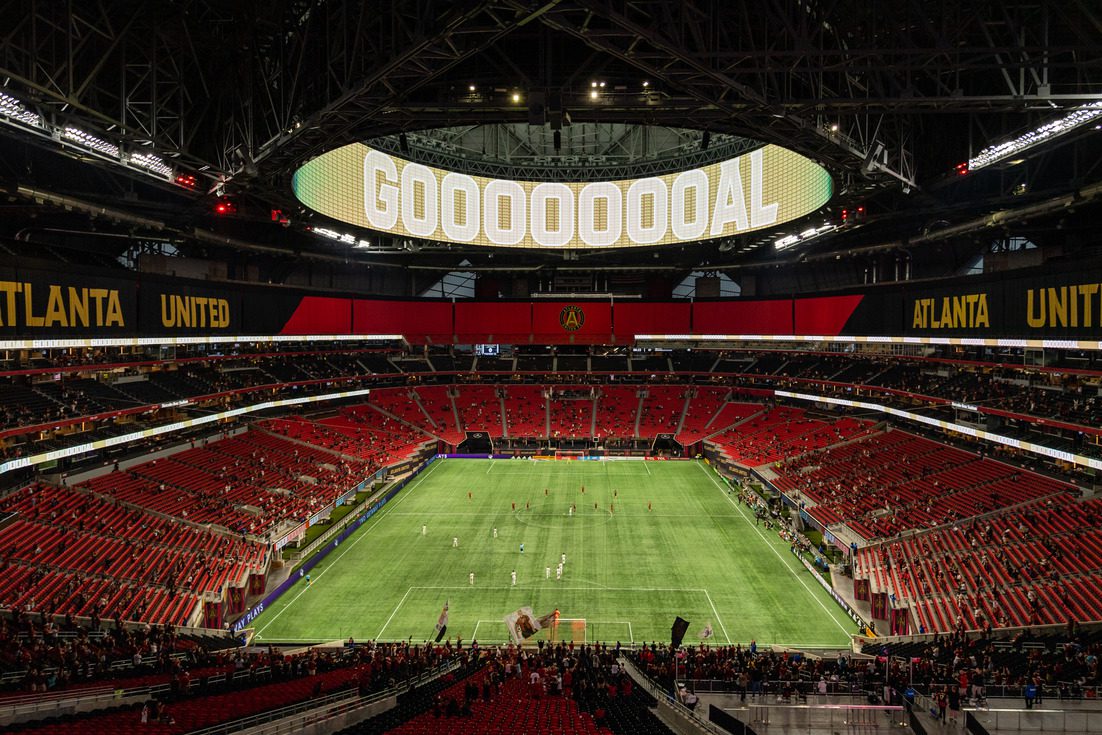What is a Football Sponsorship Manager?

On display in over 200 countries, football kits, stadiums, and players are very much in the public eye. With this comes the opportunity for companies to advertise their brand, and it is commonplace for football clubs to be paid for this service.
Club partnerships, also known as sponsorships, make up a significant portion of the money that circulates within football. During the 2023/24 season, Deloitte’s Football Money League placed Real Madrid as the first football club to generate over €1 billion in revenue, with around €482 million coming from commercial revenue alone.
This includes sponsors from hotels to tyres to video games, and these partnerships are all vital for a club’s financial stability and competitiveness in the transfer market.
Therefore, the role of a football sponsorship manager is vital, and could appeal to aspiring sports professionals.
Hal Sparke is a Partnerships Manager currently working for League One club AFC Wimbledon, and he explained to GIS what you can expect if you pursue a career in the area.
“Researching new prospective partners and managing and nurturing the partnerships you currently hold,” Hal began, “are all part of the role.”
“The fantastic thing is that no two days are the same. If you find yourself rinsing and repeating the same thing, you’re probably missing real opportunities.”
Previously at Konami, as well as working for his own sponsorship and marketing consultancy, Hal began as a social media executive and communications manager before entering the world of partnerships— an area he says can “help you understand narrative, how clubs relate to their fans, and how real, sustainable growth can occur.
“Finding those true passion points for fans and creating authentic connections are what separates the best sports partnerships from the average transactional ‘sponsorship’ types.”
With authentic connections being one factor, there are many different considerations when deciding which partnership opportunities to pursue on behalf of a football club.
Another is “goal alignment,” Hal explains.
“When a brand enters into a partnership, they have clear goals they want to achieve. As the club, you need to ensure that you can help deliver these— that’s when you see partnerships evolve.”
“The next most important is value alignment,” he continued.
“Rights holders must understand their fans and club structure before selling partnership ideas to partners. Certain clubs hold traditional or evolved stances on certain issues, leading to certain industries (e.g. betting bans in the Premier League) becoming untenable.”
With these complex factors to consider, it is no surprise that when asked about the most valuable skill for the role, Hal said: “Tenacity.”
“Organisationally, if you can stay on top of the details and ahead of the curve, create a strong strategy and deliver on your plans, you’re in a good place.
“Creatively, if you can relentlessly research new ideas, spot emerging trends and apply them effectively to your activations, you’ll breathe life into a partnership.”
With a heavy focus on the goals and values of his clients rather than the simplified pay-to-advertise approach, Hal specifically differentiates between the terms ‘partnerships’ and ‘sponsorships’.
“The semantic difference is massive. If you can demonstrate a truly reciprocal relationship between the two parties whilst also thinking outside the box to steer into, or even create, the new trend, you’ll always find success.”
Finally, Hal further conveyed his passion for the role, highlighting the importance of thinking outside the box, even when it comes to daily tasks.
“What you do with those activities is what will make the ultimate difference long-term. Business as usual or innovation— it’s up to you.”
If a role in football partnerships sounds appealing, education is a great way to acquire the fundamental skills needed to be successful.
At GIS, courses such as our Postgraduate Diploma in International Football Business programme cover modules ranging from fan engagement to football finance, offering key insights into the sports industry as well as the chance to build a valuable network.
To explore our range of courses, click here.
Article by Zakaria Anani
You may also be interested in
Our Partners
















